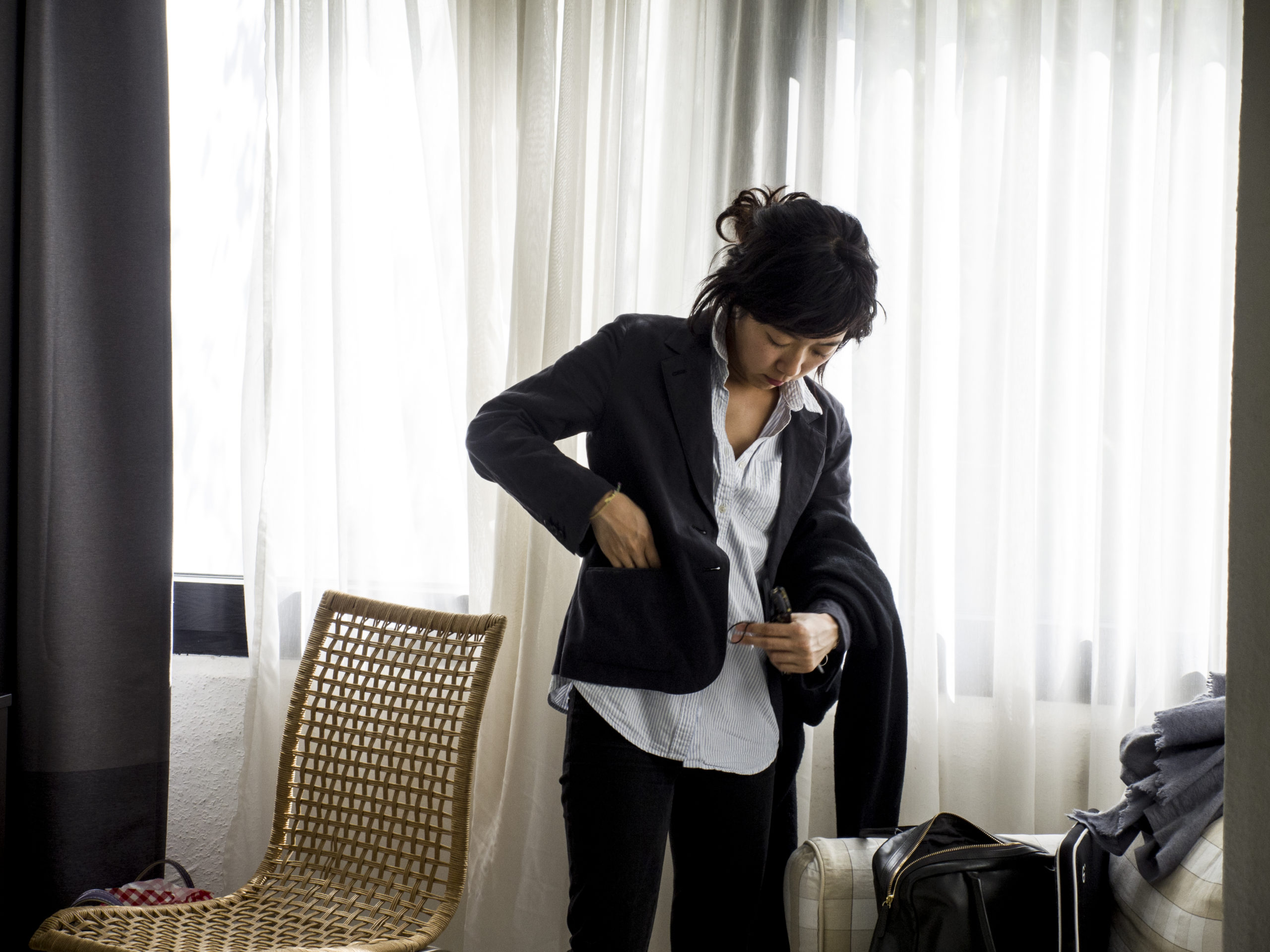Men seem to be fighting women’s corner more aggressively than women are.
Kitchen Confidential

The family hearth, tended by women, is central to society, which is why it’s so dangerous.
Alabama Senator Katie Britt’s response to Joe Biden’s State of the Union address prompted an unusually strong reaction which is still going on. Her fellow senator Tommy Tuberville is still being asked about it. While it’s no surprise that Saturday Night Live seized on Britt’s awkward performance, some of the feminist responses to her were more deserving of ridicule. What does it say that so much of the criticism focused not on any aspect of her speech itself, but on the fact that she gave it from her kitchen?
On CNN, Alyssa Farah Griffin reasoned, “I’ve got to say, the staging of this was bizarre to me, women can be both wives and mothers and also stateswomen. So to put her in a kitchen…I think fell very flat and was confusing to some women watching it.”
Huffington Post White House Correspondent S.V. Date offered some locker room talk: “Who was the consultant who put her in a kitchen? Was it the Trump ‘women can’t be president because they don’t have balls to scratch’ guy?”
The MSM’s token Russian Julia Ioffe opined: “#SOTU response delivered from a kitchen, where a woman belongs.”
But Ioffe, of all people, should know that the kitchen is the place where dissent is born and nurtured. In the Soviet Union, the subject of her many inquiries, ordinary people who never dared to question the official line in public—and even vehemently supported it—felt liberated to blow off some steam over a bowl of borscht and a glass of vodka. A popular Gorbachev-era song by the New Wave band Nautilus Pompilus described Soviet circumspection: “one kind of words are for the kitchens, another kind—for the streets.” To this day, Russians prefer small, intimate kitchens that remind them of Soviet comforts.
Russians are by no means unique in considering kitchens the nerve centers of their home. That’s where significant amount of time is spent on arranging family nourishment and heart-to-heart conversations flow freely. From there, American homes are filled with the scents and spices, and walls are removed to allow natural light to penetrate from all directions.
We recognize the significance of that room—as our real estate agent once advised, “kitchens sell houses.” Buyers imagine themselves spending time not in living rooms or entryways or any other space designed chiefly for public display, not private spaces like master bedrooms or bathrooms, but kitchens which are a bit of both worlds.
Open space cooking areas give each and every house guest access to the intimate acts of nourishment. Feeding a family is a private act, but we open them to guests and show off our equipment. Our spacious kitchens allow for large gatherings around the island. Instead of hushed voices, we are accustomed to loud conversations over music and guests circulating around the house.
Dishes are whipped out in front of everyone’s eyes and culinary traditions can be exchanged at will. American kitchens are designed to share information—the idea of cultural appropriation is anathema to our way of life.
Bodies and minds are nourished when innovation and participation are encouraged. Open concept kitchens serve as great metaphor for that. Our communities are built bottom-up, centered around everyday activities and the freedom and needs of their inhabitants—as opposed to the whims of environmentalists and urbanists. Bureaucratic control stands in opposition to popular wishes. A well-prepared meal requires a gas stove, but in California, environatic busybodies are phasing out gas. All of it is being done without feedback from voters.
Back in the real world, updated amenities are a source of family pride, something women dream of and spend long hours working for. We insist on costly remodels, thinking through every minute detail. Dual income families can afford homes with spacious chef’s kitchens with multiple ovens and the latest model refrigerators. Feminists used to scoff at conversations about pots and pans; contemporary working mothers revel in their Le Creusets.
Few American women see cooking as a meaningless chore. Not just because feeding a family is inherently meaningful—we make a public display of it and get quite competitive about it. Women try out new recipes and brag about our own innovations on social media. Regardless of that content, American open kitchens are places for creativity and dynamism.
So, why are feminists and their friends crudely bullying a conservative woman like Britt out of her kitchen? After all, they themselves happily share that space with their husbands and friends. They are uplifted, not oppressed, by the environment.
Female Democratic politicians have no problem advertising themselves next to their state-of-the-art stoves. In 2019, former presidential hopeful Elizabeth Warren filmed herself in her kitchen awkwardly offering her husband a beer. At the beginning of the Covid lockdown, House Speaker Nancy Pelosi gave America a televised tour of her kitchen, proudly showing off her two $24,000 refrigerators, one of which she keeps stocked just with ice cream. The ever-obedient mainstream media makes a note of Democratic politicians’ cooking habits. Home and Garden gushes at Vice President Kamala Harris’s kitchen cabinets while Elle suggests trying her Thanksgiving turkey recipe—though we all suspect it’s as authentically hers as Warren’s contribution to the Pow Wow Chow cookbook.
Yes, Julia Ioffe, women very much belong in the kitchen. No, S.V. Date, it’s not because some MAGA-bro locked her up there. And no, Alyssa Farah Griffin, women are not confused by the backdrop—we are proud of our kitchens as much as Britt is of hers. To say that women are oppressed by cooking is to resurrect an ancient stereotype of family relations and labor. It hardly ever corresponded to reality and is certainly not true of our optimistic, bourgeois traditions. The kitchen is the seat of women’s power, it’s a visual reminder of the centrality of her position in her family, community, and beyond. It’s a place from which she can speak authoritatively and authentically, where words acquire meaning and fresh ideas are born.
The American Mind presents a range of perspectives. Views are writers’ own and do not necessarily represent those of The Claremont Institute.
The American Mind is a publication of the Claremont Institute, a non-profit 501(c)(3) organization, dedicated to restoring the principles of the American Founding to their rightful, preeminent authority in our national life. Interested in supporting our work? Gifts to the Claremont Institute are tax-deductible.
Connecting the dots the experts won’t
A second-wave feminist fails to discern failure
Ladies, go from cheap date to soul mate with this one neat trick.
A generation grows tired of the tiresome
As the Left abandons the meaningful existence of gender, abortion remains a sacrament reserved for women in the woke cathedral.






